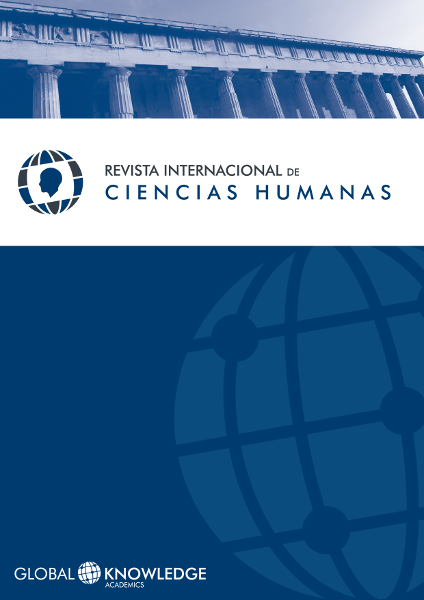Real Power of the perspective based on Human Relations and Behavioral Styles
Keywords:
Real Skills, Human Relations, Behavioral StylesAbstract
The breakdown of the traditional paradigms in the Ecuadorian education emerges to the urgent need for the omnipresence of the knowledge society, the requirements of solution are varied ,the effectiveness mitigated by context, not a panacea this proposal has legitimized the efficiency and effectiveness of academic training process of versatile professionals, competent and competitive contributing to sustainable, sustainable development of the country in line with its regional peers focused on international competitiveness (professional climbing). The skills of the students are identified, their skills are power, meets their personal needs, and it contributes to meeting the needs of the collective permeating warm human relationships, maximizing cooperative behavior assertive achievements through actual factual evidence. Methods, techniques and strategies vary according to the level that present the pre-professional; a standard educational model based on real skills, communication and satisfaction of human needs in accordance with the ecosystem, legitimizes the formation processes in real scenarios through cooperation.
References
Alzate, R. (1998). Cognición y negociación: una revisión a la literatura desde la teoría prospectiva. Revista de Psicología Social Aplicada, 2, 43-73.
Alzate Saez de Heredia, R. (1998). Análisis y resolución de conflictos. Una perspectiva psicológica. Bilbao: Servicio Editorial Universidad del País Vasco.
Constitución Política de la República de Ecuador, XVI, (1945).
Constitución de la República de Ecuador, (2008).
Decaración Universal de los Derechos Humanos, (1948).
Delors, J. (1998). La educación encierra un tesoro. Informe a la UNESCO de la Comisión Interna-cional sobre la Educación para el siglo XXI. Madrid: Editorial Santillana/UNESCO.
Fuentes González, H. C. (2003). Modelo Curricular en base a competencias profesionales. Santa Fe de Bogotá: Fundación Escuela Superior INPAHU.
Fuentes González, H. C. (2004a). El método del proceso de formación de profesionales. Ciego de Ávila: Compendio de artículos para la maestría en Educación Superior UNICA.
Fuentes González, H. C. y Matos Hernández, E. C. (2004b). La diversidad en el proceso de investi-gación científica. Reto actual en la formación de investigadores. Santiago de Cuba: Centro de Estudios Superior “Manuel F. Gran”. Universidad de Oriente.
Galtung, J. (1989). Peace and developmment in the pacific hemisphere. Honolulu: University of Hawaii Institute for Peace.
Galtung, J. (1990). Cultural Violence. The Journal of Peace Research, 27, 291-305.
Galtung, J. (1990). Teorías del Conflicto, Violencia Estructural.
Goleman, D. (1996). Inteligencia Emocional (Cuarta Edición). Barcelona. España.
Moravek, J. (1996). Aprendizaje Invisible, hacia una nueva ecología de la educación. Barcelona. España.
Objetivos de Desarrollo del Milenio (2000-2015).
Paredes R., J. V. (2014). Sindéresis de las competencias reales desde una perspectiva Empírico-Teórica. XI Conferencia Científica. Ciego de Ávila. Cuba
Paredes R., J. V. (2015). Desarrollo de Competencias Reales y Habilidades Cognitivas a través del Flujo Comu-nicacional. 1er Congreso Internacional de Ciencias Pedagógicas. Guayaquil. Ecuador.
Paredes R., J. V. (2015). Incidencia de la Comunicación y Satisfacción de las necesidades humanas en el logro de las competencias reales. Primer Congreso Internacional de Ciencia y Tecnología UT-MACH. Machala. Ecuador.
Plan de Desarrollo Nacional, Ecuador (2013-2017).
Plan Nacional para el Buen Vivir, Ecuador (2009-2013).
Redorta, J., Obiols, M. y Bisquerra, R. (2006). Emoción y conflicto. Barcelona: Paidós.
Rodríguez J. L. J. (2014). Comunicación Asertiva. II Congreso Ética y Valores Institucionales. Costa Rica.
Ruvalcaba F. H. (12011). Los Niveles de Asimilación del Contenido y la Práctica Docente.
Satir, V. (2002). The New Peoplemaking (Nuevas Relaciones Humanas en el Núceo Familiar). California.
Tobón, S. (2008). Planeación Didáctica. Principales Estrategias Didácticas para formar Compe-tencias. Cife. Bogotá
Wiske, S. (1999). La Enseñanza para la Comprensión. Vinculación entre la Investigación y la prác-tica. Barcelona. España.
Published
Issue
Section
License
All articles are published under an Attribution-NoDerivatives 4.0 International (CC BY-ND 4.0) license. Authors retain copyright over their work.

